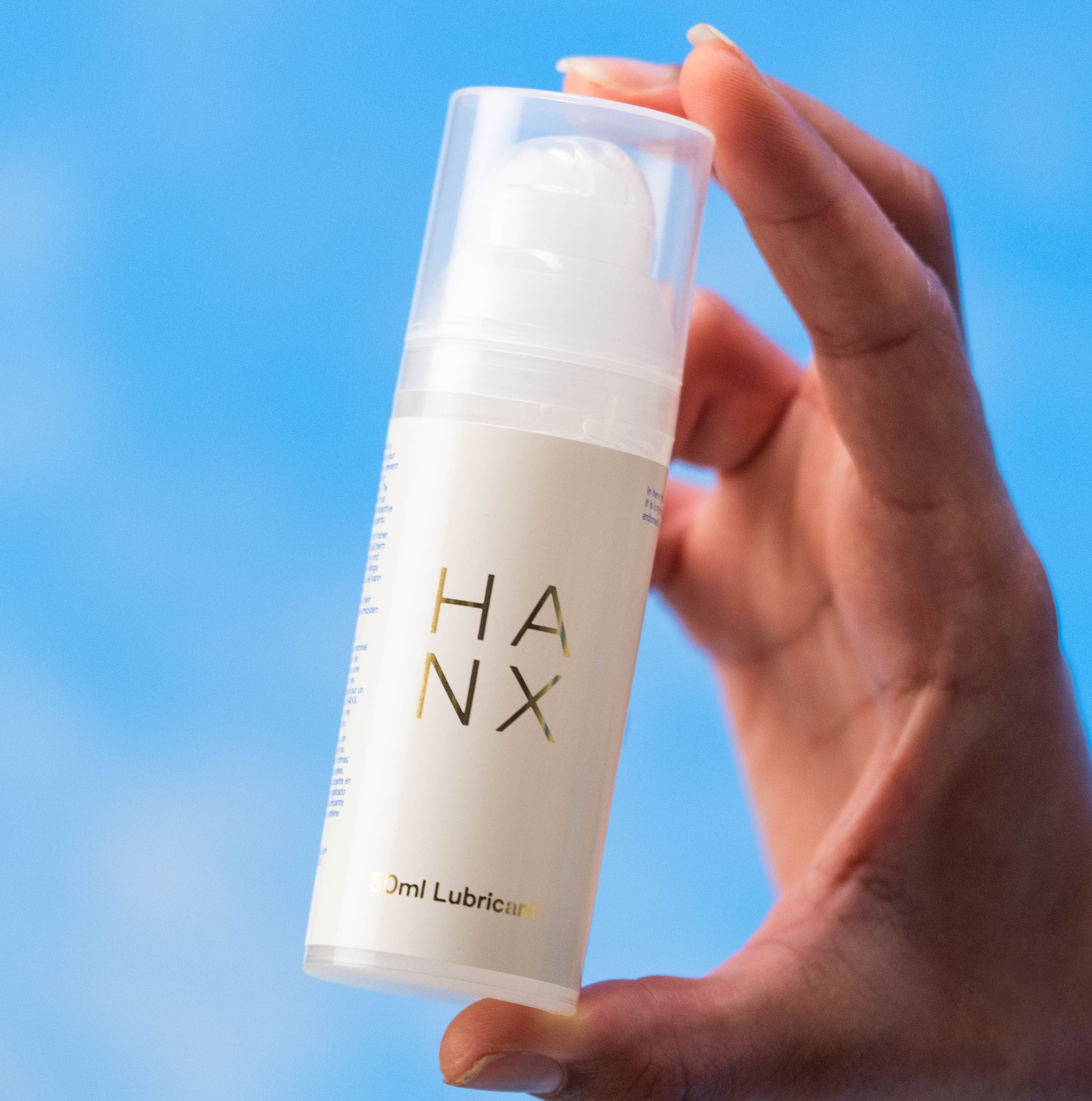How To Handle Mismatched Libidos In A Relationship
If you’ve ever not been in the mood but felt pressure to fulfil that hottie from Hinge’s desire for sex post-date or felt weird about having a higher libido than anyone you’ve dated, you’re not alone. It can be especially difficult to navigate if you’re in a relationship.
Dealing with clashes in sex drives in a relationship can be tough. There’s a certain irony that we can sometimes feel anxious talking about sex with the person who we’re having sex with. In fact, for many of us, chatting about sex when it’s good is hard enough – let alone when things aren’t going to plan. Talking about it really can feel like opening a can of very unsexy worms. From the first-time flushes of love (or lust), relationships are supposed to be bathed in the golden glow of the shag. Groping bums in farmer’s markets, swapping pub nights for bed/sofa/shower/wherever we can get to before we just-have-to-do-it nookie: it’s all par for the course… but when the rose coloured glasses fall off, sex can be a little less easy to navigate.
Ever heard the term ‘frigid’? It’s long been used as a desultory term for people, traditionally cis women, who don’t want to have sex whenever they’re expected to. The lingering haze of the stigma around not being ‘up for it’ can often push us to hide our true feelings about not being in the mood for sex – and for those at the opposite end of the desire spectrum, too.
Join us as we explore why our sex drive can differ from the person we’re sleeping with, and how to handle that collaboratively and consciously.
My Sex Drive Is Lower Than My Partner
It’s normal for libido to fluctuate throughout our lives, and for many reasons including:
- Stress
- Not having enough time for sex
- Body image
- Medication, including SSRIs and hormonal contraception
- Orgasm anxiety
- Money worries
- Pregnancy and postpartum recovery
- Menopause
- Health issues e.g. vaginismus
-
Sexual disconnection e.g.
Many of these are topics already shrouded in silence and internalised shame, so it’s no wonder that raising the topic of mismatched sex drives can feel awkward or uncomfortable. Often, the partner with a lower sex drive can feel guilty for not wanting sex as much as the other party. Some even fear being the reason for a “dead bedroom” situation: a relationship where you haven’t had sex for a relatively long period of time. Those of us who have experienced this know it can be an incredibly emotionally vulnerable time and the longer it goes on (think even years), it really can drive a wedge between yourself and your partner. For many, sex is an important element of being in a relationship, with physical intimacy creating emotional intimacy.
My Sex Drive Is Higher Than My Partner
Conversely, being the partner who wants sex more often can be hard to navigate, too. One member of the HANX community said having a higher sex drive than their partner made them feel like “an insatiable beast” and that they worried that their partner didn’t really want to have sex, but felt they should do it to ‘keep up’. For others, facing the topic head-on means confronting the fear that their partner’s lack of desire is due to lack of attraction. This can be distressing and confusing, especially if you're still heart-eyed about the person sharing your dressing gown and watching MAFS next to you on the sofa.
Being the partner with a higher libido can also put you in a position where you’re experiencing consistent rejection when aiming to instigate sex. The myth persists that men are always ready to jump in the sack and this just isn't true. Sex drive is unique person to person, regardless of gender.
When sex drives are mismatched, it can mean that a fairly innocent kiss becomes viewed with anxiety by the partner with a lower sex drive, who might consider it preamble to ‘full sex’. Far from just a simple conversation about a natural bodily response, there’s often a huge amount of emotion, hopes and worry woven in on both sides.
How to manage mismatched desire for sex with your partner
Time to Talk
Our Co-Founder Dr Sarah Welsh spent years working in NHS sexual health, and just as much as she heard about unusual discharge and itching, she heard about disconnection in relationships. As she always says, communication is the key to a happy, healthy sex life. It might not come naturally (as it were) but being able to confidently articulate our needs and desires can help to avoid, or at least navigate, hiccups along the road. This can be an intense conversation, so try to find an ideal time to make space for it (e.g. not on the school run, when you’re on the bus back from a house party at 2am or in a rush to make it out the door to work). Relate, the UK’s relationship charity, is well-experienced in supporting partners through all kinds of challenging situations, and has excellent advice on how to approach the conversation. We also recommend psychosexual therapist Dr Kate Moyle’s new book, The Science of Sex, which explores the illusion of ‘perfect sex’, helps you to challenge ideas of ‘normal’ in the bedroom and is inclusive of all bodies, genders and sexualities.
Masturbation
Whilst it stereotypically has been painted as a solitary act, self-pleasure can be a way to supplement your differing sexual schedules, especially if you both are aware and on board with the setup. In fact, some studies show that having a wank can actually boost your desire for sex generally! This might well be down to a greater self-awareness and understanding what gets you off, which helps you communicate to your partner how to successfully, and sexually, reach the O zone. Whether you’re a manual driver who loves getting handsy, or up for getting creative with sex toys, scheduling in a little me-time when the urge hits can be a winner if your partner isn’t quite in the same mood.
Mutual masturbation or playing voyeur whilst your partner wanks themself off can also help to navigate the lower/higher sex drives scenario (with active, enthusiastic and continuous consent, of course).
Reimagine Intimacy
If you or your partner’s sexual predilections or kinks don’t align, you might not feel up for having sex due to fear of disappointing them, or not being into their desires. For example, they might find foot worship extremely erotic – whereas you might feel indifferent, or even dislike feet being involved in sex play. Our desires are entirely unique, and where we might sometimes have to draw a line and/or respect our partner’s boundaries, one thing we can do is challenge our perception of what sex actually can be. It doesn’t have to look like the sex that’s considered ‘normal’ or go-to e.g. vaginal penetration. Kissing, cuddling, massage, oral sex or mutual masturbation are all perfectly valid, and very hot, ways of getting off with each other. It all comes back to the communication piece: “if not this, how do you feel about this?” “I love it when you do X – what do you love me doing with you?”.
Often, getting in the mood doesn’t start in the bedroom. Creating emotional intimacy and demonstrating your feelings for them practically can help to set the tone. A study by The Conversation in the Journal of Sex Research showed that women in equal relationships, where housework and the mental load are shared, are more satisfied and feel more sexual desire than those in unequal relationships. The mental load is the term used for the invisible labour of managing a household and/or family, which typically falls to women to handle. Whether you have dependents or not, the mental load refers to the perpetual mental awareness of social schedules, decision making, logistical planning and delivering in the domestic space – all often on top of a professional role. Taken for granted, and beyond the physical impact of these chores, it creates mental burnout, leaving 9 in 10 women feeling overwhelmed and unable to focus on self-care. Aside from pushing for a broader societal shift when it comes to household responsibilities, step up for the person who is primarily handling the mental load, and it can help them to re-engage with their sexual sense of self.
See the bigger picture
Sometimes, it feels like the whole world is having more sex than you. In fact, there is no ‘set’ amount of sex we should be having per week, month, year and it can be exhausting or distressing to live up to these imagined standards. Cut yourself and your partner some slack, and focus on building your own personal desire schedules, that encompass a nuanced and empathic view of your wishes and domestic responsibilities.
Want more?
- Boost your sex drive naturally with our Libido Lift supplement
- What Impact Does Menopause Have On Libido?
- Feeling adventurous? Try A Beginner’s Guide To Polyamory






















